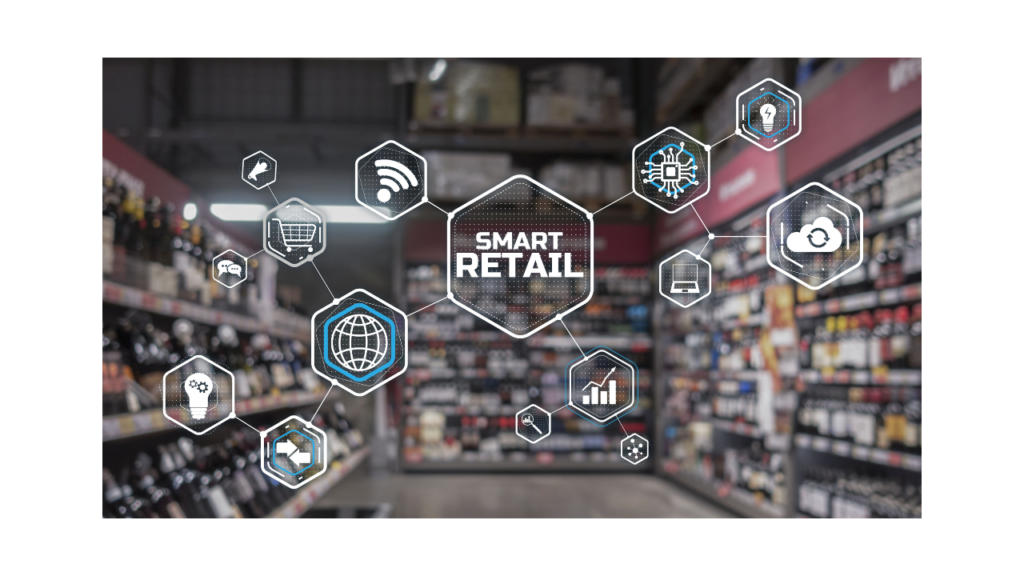Introduction to AI Automation for Small Retail Businesses
Small businesses face unique challenges that can hinder their growth and efficiency. AI automation has emerged as a transformative solution, enabling these businesses to streamline operations and enhance customer experiences. By leveraging advanced technologies, small retailers can automate repetitive tasks, allowing them to focus on strategic initiatives that drive sales and customer loyalty. The integration of AI tools can seem daunting, but the potential benefits are substantial. From managing inventory to personalizing customer interactions, AI can significantly reduce operational costs and improve decision-making processes.
Moreover, the adoption of AI is not limited to large corporations; small retailers can also harness its power to compete effectively in the market. With the right tools, even the smallest shops can analyze consumer behavior, predict trends, and optimize their offerings. As the retail landscape continues to evolve, embracing AI automation is becoming less of an option and more of a necessity for small businesses aiming to thrive. By understanding the various applications of AI, retailers can position themselves to not only survive but flourish in an increasingly competitive marketplace.
Benefits of Implementing AI Automation in Retail

Integrating AI automation into small retail businesses offers a multitude of benefits that can significantly enhance operational efficiency and customer satisfaction. One of the most notable advantages is the reduction in operational costs. By automating repetitive tasks, businesses can minimize labor expenses and allocate resources more effectively. This not only saves money but also allows employees to focus on higher-value activities that drive growth.
Another key benefit is improved decision-making. AI systems can analyze vast amounts of data quickly, providing insights that help retailers make informed choices about inventory, pricing, and marketing strategies. This data-driven approach leads to more accurate forecasting and better alignment with customer demand.
Additionally, AI automation enhances customer experience. Personalized recommendations and tailored marketing campaigns, powered by AI algorithms, can significantly increase customer engagement and loyalty. When customers feel understood and valued, they are more likely to return, boosting sales and fostering long-term relationships.
Moreover, AI can streamline operational processes. From inventory management to supply chain logistics, automation reduces human error and increases speed. This efficiency not only improves productivity but also ensures that businesses can respond swiftly to market changes and customer needs.
Finally, implementing AI automation can provide a competitive edge. As more retailers adopt these technologies, those who lag behind risk losing market share. By embracing AI, small retail businesses can position themselves as innovative leaders in their industry, attracting tech-savvy consumers and staying ahead of the competition.
Key Areas Where AI Automation Can Enhance Efficiency

AI automation can significantly enhance efficiency in several key areas of small retail businesses. By integrating AI technologies, retailers can streamline operations, reduce costs, and improve customer experiences. Here are some critical areas where AI can make a substantial impact:
- Inventory Management: AI systems can analyze sales data and predict inventory needs, ensuring that stock levels are optimized. This minimizes overstock and stockouts, leading to better cash flow and customer satisfaction.
- Sales and Marketing: AI tools can analyze customer behavior and preferences, allowing retailers to create targeted marketing campaigns. This personalization increases engagement and conversion rates.
- Supply Chain Optimization: AI can enhance supply chain efficiency by predicting demand fluctuations and optimizing logistics. This results in faster delivery times and reduced operational costs.
- Customer Insights: By leveraging AI analytics, retailers can gain deeper insights into customer preferences and trends. This data-driven approach enables informed decision-making and strategic planning.
- Fraud Detection: AI algorithms can monitor transactions in real-time, identifying suspicious activities and reducing the risk of fraud. This enhances security and builds customer trust.
By focusing on these areas, small retail businesses can harness the power of AI automation to drive growth and improve overall efficiency. The integration of AI not only simplifies processes but also empowers retailers to make smarter, data-driven decisions that can lead to long-term success.
How AI Automation Streamlines Inventory Management

Effective inventory management is crucial for small retail businesses, and AI automation offers transformative solutions that can significantly enhance this process. By leveraging advanced algorithms and machine learning, retailers can achieve a level of precision in inventory tracking that was previously unattainable. One of the primary benefits of AI in inventory management is its ability to analyze vast amounts of data in real-time. This capability allows businesses to monitor stock levels, predict demand fluctuations, and identify trends that inform purchasing decisions.
AI systems can automate the reordering process, ensuring that popular items are always in stock while minimizing excess inventory. This not only reduces holding costs but also enhances cash flow. Additionally, AI can help in categorizing products based on sales velocity, seasonality, and customer preferences, allowing retailers to optimize their inventory mix.
Another significant advantage is the reduction of human error. Manual inventory counts are often prone to mistakes, leading to discrepancies that can affect sales and customer satisfaction. With AI, automated counting systems can provide accurate, real-time data, enabling retailers to make informed decisions swiftly.
Furthermore, AI can facilitate better supplier management. By analyzing supplier performance and lead times, retailers can negotiate better terms and streamline their supply chain processes. This holistic approach not only improves efficiency but also enhances the overall customer experience, as products are more likely to be available when needed.
AI automation in inventory management empowers small retail businesses to operate more efficiently, reduce costs, and improve customer satisfaction. By embracing these technologies, retailers can position themselves for sustainable growth in an increasingly competitive market.
Automating Customer Service with AI

In the fast-paced world of retail, exceptional customer service is paramount. AI automation offers a transformative approach to enhancing customer interactions, ensuring that businesses can meet customer needs efficiently and effectively. By integrating AI-powered chatbots and virtual assistants, small retail businesses can provide 24/7 support, addressing customer inquiries at any time of day. These AI systems can handle a variety of tasks, from answering frequently asked questions to processing orders and managing returns.
One of the most significant advantages of AI in customer service is its ability to analyze customer data and preferences. This capability allows businesses to offer personalized recommendations, enhancing the shopping experience. For instance, when a customer engages with a chatbot, the AI can access their purchase history and suggest products tailored to their tastes. This not only improves customer satisfaction but also drives sales.
Moreover, AI can streamline the process of handling customer complaints. Instead of waiting for a human representative, customers can receive immediate responses from AI systems, which can resolve common issues or escalate more complex problems to human agents when necessary. This dual approach ensures that customers feel heard and valued, while also freeing up human staff to focus on more intricate tasks.
Implementing AI in customer service also leads to significant cost savings. By automating routine inquiries, businesses can reduce the need for extensive customer service teams, allowing them to allocate resources more effectively. Additionally, AI systems can learn from interactions over time, continually improving their responses and efficiency.
In summary, automating customer service with AI not only enhances the customer experience but also optimizes operational efficiency. By leveraging these technologies, small retail businesses can stay competitive in an increasingly digital marketplace, ensuring that they meet and exceed customer expectations.
Using AI for Predictive Analytics and Sales Forecasting

In the fast-paced world of retail, understanding customer behavior and market trends is crucial for success. AI-driven predictive analytics offers small retail businesses the ability to analyze vast amounts of data, transforming it into actionable insights. By leveraging historical sales data, customer preferences, and seasonal trends, AI can forecast future sales with remarkable accuracy. This capability allows retailers to make informed decisions about inventory levels, staffing needs, and marketing strategies.
One of the key advantages of using AI for sales forecasting is its ability to identify patterns that may not be immediately apparent to human analysts. For instance, AI algorithms can detect subtle shifts in consumer behavior, such as a growing preference for specific products or changes in purchasing times. This information can be invaluable for tailoring promotions and optimizing stock levels.
- Enhanced Accuracy: AI models continuously learn and adapt, improving their predictive capabilities over time.
- Real-Time Insights: Retailers can access up-to-date forecasts, allowing for quick adjustments to strategies.
- Cost Efficiency: By minimizing overstock and stockouts, businesses can reduce waste and improve profitability.
Moreover, integrating AI into sales forecasting can streamline communication across departments. Marketing teams can align their campaigns with predicted sales spikes, while supply chain managers can ensure that inventory levels meet anticipated demand. This cohesive approach not only enhances operational efficiency but also improves customer satisfaction by ensuring that popular products are readily available.
In summary, implementing AI for predictive analytics and sales forecasting empowers small retail businesses to stay ahead of the competition. By harnessing the power of data, retailers can make strategic decisions that drive growth and enhance the overall shopping experience for their customers.
Implementing AI Automation: Steps and Best Practices for Small Retail Businesses

Implementing AI automation in small retail businesses requires a strategic approach to ensure successful integration and maximum benefits. Start by assessing your current operations to identify areas where automation can have the most impact. This could involve evaluating your inventory management, customer service processes, and sales forecasting methods. Once you have pinpointed these areas, set clear objectives for what you hope to achieve with AI automation. Whether it’s reducing operational costs, enhancing customer experience, or improving inventory accuracy, having defined goals will guide your implementation process.
Next, choose the right AI tools that align with your business needs. There are numerous platforms available, ranging from chatbots for customer service to advanced analytics tools for sales forecasting. Research and select solutions that are user-friendly and scalable, allowing your business to grow without the need for constant upgrades. Additionally, consider the integration capabilities of these tools with your existing systems to ensure a seamless transition.
Training your staff is another critical step. Provide comprehensive training sessions to help your team understand how to use the new AI tools effectively. This not only boosts their confidence but also maximizes the potential of the technology. Encourage a culture of adaptability and continuous learning, as the landscape of AI is constantly evolving.
Finally, monitor and evaluate the performance of your AI systems regularly. Collect data on key performance indicators (KPIs) to assess whether your objectives are being met. This ongoing evaluation will help you make necessary adjustments and improvements, ensuring that your AI automation efforts continue to deliver value over time. By following these steps and best practices, small retail businesses can successfully implement AI automation and reap its numerous benefits.



